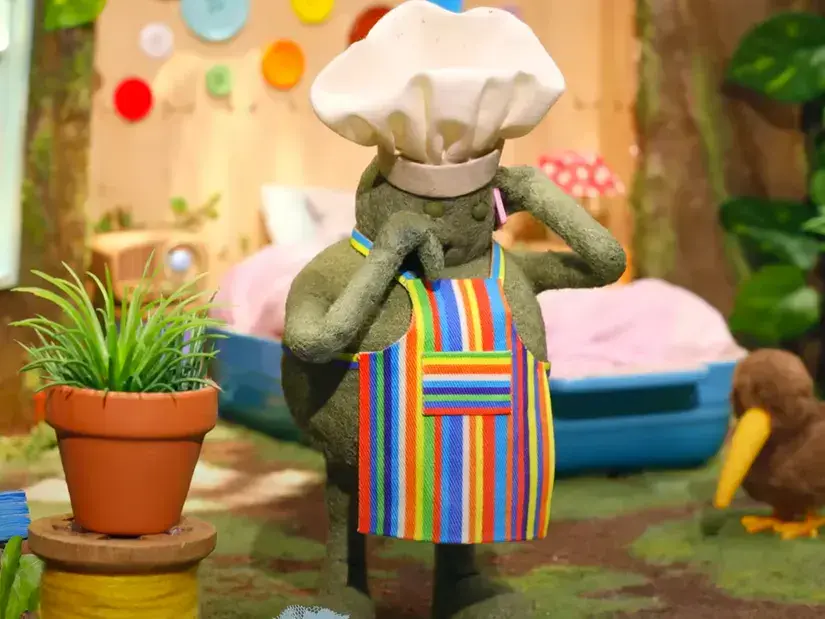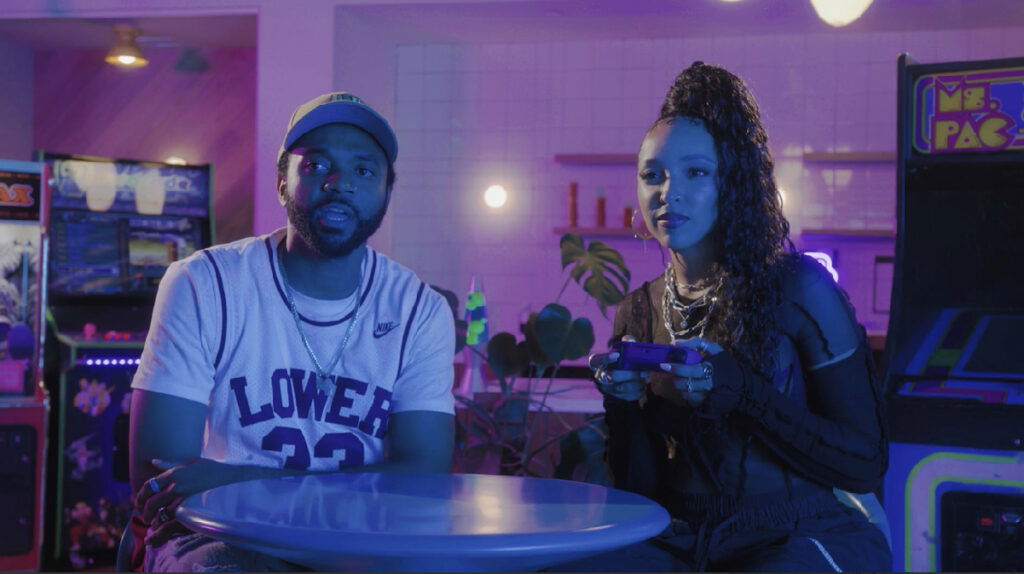‘Queen Charlotte’ Season 1, Episode 1 Recap: A ‘Bridgerton’ favorite gets her origin story
OPINION: In episode one, we see how a young Charlotte becomes a queen in this “Bridgerton” prequel from show creator The post ‘Queen Charlotte’ Season 1, Episode 1 Recap: A ‘Bridgerton’ favorite gets her origin story appeared first on TheGrio.
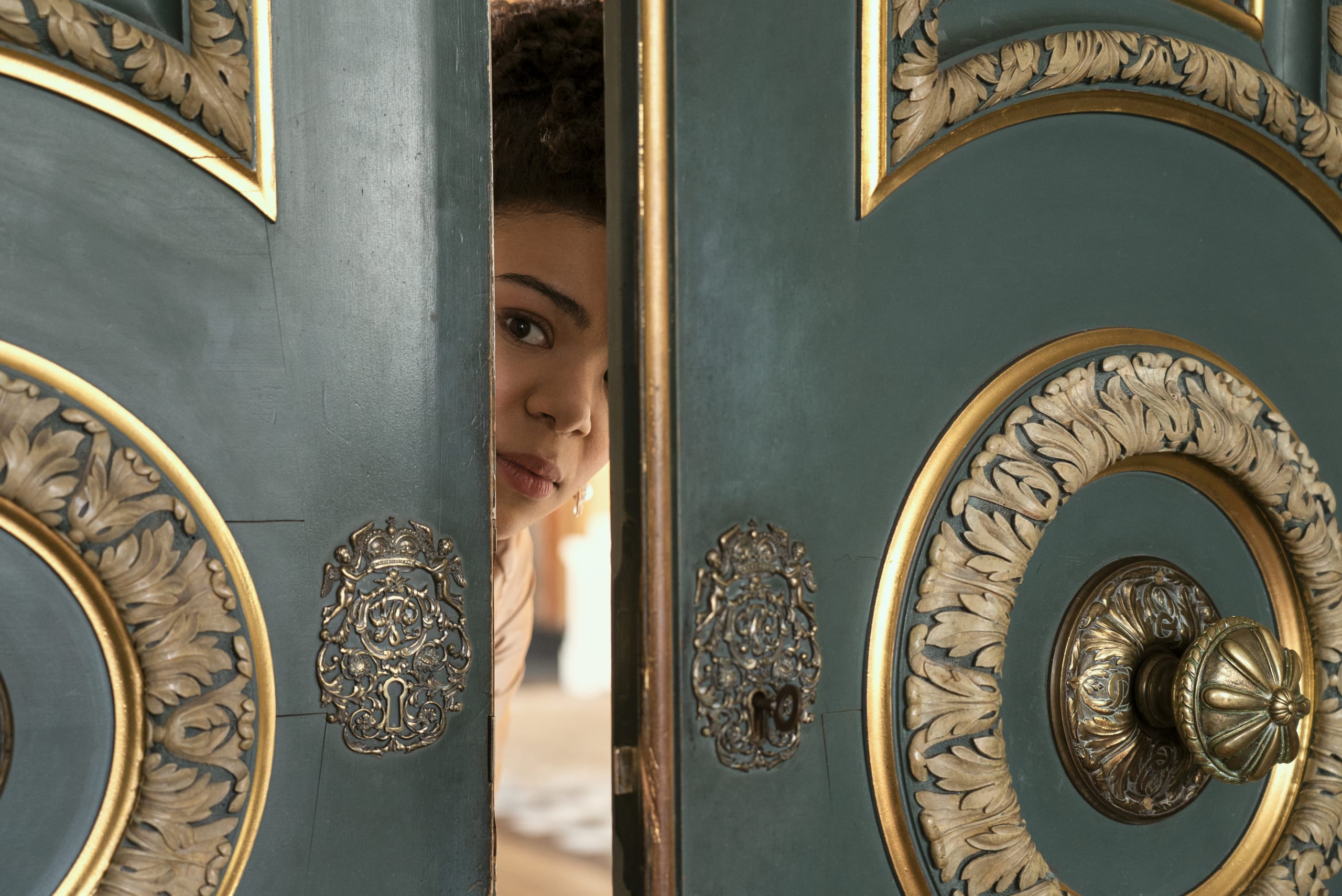
OPINION: In episode one, we see how a young Charlotte becomes a queen in this “Bridgerton” prequel from show creator Shonda Rhimes.
Editor’s note: The following article is an op-ed, and the views expressed are the author’s own. Read more opinions on theGrio.
Content warning: mentions of rape and sexual assault.
“Bridgerton” hive, we back! And for everyone whose Black princess dreams were royally dashed by the IRL racist United Kingdom, never fear: the “Bridgerton” spin-off “Queen Charlotte: A Bridgerton Story” is finally here. But, much like Meghan Markle, Queen Charlotte’s fantasy of a steamy romance with her hot new husband King George III quickly melts into a devastating reality.
Let’s start at the beginning.
The first two seasons of “Bridgerton” gave us a hilarious but somewhat shallow Queen Charlotte (played brilliantly by Guyanese-British actress Golda Rosheuvel), who rules the British Empire and her court with a prickly heart. Though “Bridgerton” left much to be desired regarding the Queen’s character development and involvement in the storyline beyond throwing balls and barbs, Rosheuvel’s layered performance showed that there was perhaps more to the gossip-loving queen than meets the eye.
Her rare signs of softness were revealed mostly when she was dealing with her dear husband the king, who was dealing with an unnamed mental illness and was behind the scenes of royal life.
As the queen’s indubitable best friend Lady Danbury (a stellar Adjoa Andoh) pointed out in season one, the king and queen’s interracial love story changed a nation and (supposedly) ended de jure racism in the royal court – even though racists and racist oppression (and slavery!!!! hello???) obviously still existed — allowing for a diverse society of wealthy and titled people and a Black queen as the face of a brutal colonial empire responsible for the devastation of entire peoples, cultures and the environment that persists to this day.
But let’s turn off our thinking caps and enjoy anyway!
In “Queen Charlotte,” “Bridgerton” executive producer Shonda Rhimes is back, this time as the series creator, writer and showrunner. Rosheuvel also reprises her role, with the series focusing not only on her present “Bridgerton”-era life with her 15 heirs and that pesky Lady Whistledown telling all her business but also her origin story.
Starring the beautiful India Ria Amarteifio as the young Queen Charlotte, we meet 17-year-old Charlotte in episode one in a province of Germany run by her brother. Without Charlotte’s permission or even foreknowledge, her brother has sold her off to marry the King of England — a huge social status bump for a young, titled Black lady in the Georgian Era.
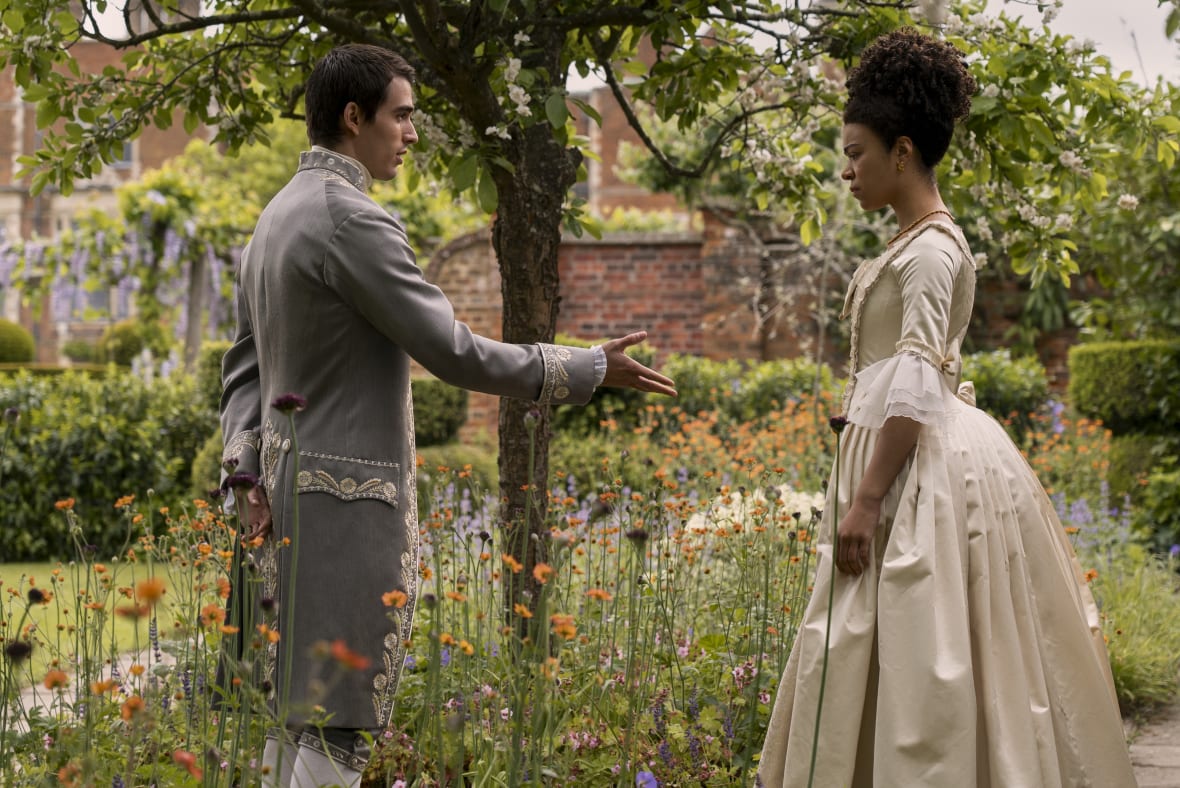
But, of course, she wants no part of it. Charlotte is headstrong, well-read and full of opinions on how her life should go. She also, rightfully, senses a trap. The king of England could have any royal lady he chooses. Why go to a tiny province in Germany to get a Black lady to rule?
Her suspicions that something is off with this marriage arrangement are confirmed upon arrival in England when her mother-in-law-to-be, Princess Augusta, is evasive and hostile with Charlotte, acting like that white woman boss who wonders aloud why the “diversity hire” isn’t more grateful that your Black ass even got in the front door. Examining Charlotte’s teeth, hands and hips as if Charlotte were an enslaved woman on a British auction block, the princess knows just how to put Charlotte in her place.
(In case it’s a bit confusing that the king’s mother is a dowager princess: Her husband was only a prince when he died unexpectedly so her son, King George III, succeeded his grandfather for the throne, skipping over her, who remains a princess.)
Everything comes to a head when absolutely none of the palace staff will tell Charlotte anything at all about her husband-to-be. Convinced he is an unmarriable troll, Charlotte escapes from the palace just as her wedding is to begin.
Lost in a labyrinth of bushes, she resigns herself to climbing over the wall and being free of this “Get Out” situation once and for all. A handsome young man stops her from climbing over the wall and refuses to help her. They banter. It’s all very charming. And, wouldn’t you know it, he reveals himself to be King George, the man she’s confessed she doesn’t want to marry.
He woos her and tells her that marrying him is her choice alone to make. Now that she knows he’s not a troll, but in fact, a very hot, tall, witty man, she decides to go through with the wedding. In her first queenly act, she defies the princess’ commands and wears her own fancy Parisian wedding gown down the aisle.
Of course, it’s a bit of a scandal that the king is marrying a Black queen, but it’s only addressed quickly, in a very “Bridgerton” way that these series deal with (or don’t deal with) race: subtext. Alas, in the “Bridgerton”-verse, we’re not getting anything stronger than a Black character’s rogue comment about how significant a powerful position is for “someone who looks like us” and a white character’s assessment that the queen-to-be “is very brown … [but] it’s only a problem if the palace says it’s a problem.”
Hilariously, Charlotte is not far off in complexion from her husband-to-be, but still, her Blackness benefits the darker-skinned characters who soon get a huge boost in status themselves in order for Charlotte to feel more welcomed and for Britain to look more progressive. By inviting wealthy Black society members to become titled lords and ladies, Princess Augusta reasons that it will look like the king chose a Black queen on purpose — and not like they had to go to a small town to find a stranger in order to protect a secret.
Thankfully, this brings us young Agatha Danbury (the absolutely stunning Arséma Thomas. Seriously, she’s so gorgeous!). Finally, we get Lady Danbury’s backstory, as she is front and center with Charlotte in this series. She and her much older husband are invited to Charlotte’s wedding and named lord and lady and invited into the Ton, along with a handful of other Black households. This led me to hope that Rhimes and Co. were addressing those colorism charges head-on in this series.
For two seasons, complaints of colorism have hounded “Bridgerton,” as light-skinned and biracial Black characters get to swoon and be swooned over and dark-skinned Black characters were either silent nameless maids to their light-skinned lords and ladies or angry, brutal stereotypes like the duke of Hastings’ father in season one.
Despite Thomas’ excellent starring turn in her TV debut as young Lady Danbury, “Queen Charlotte” is not beating the colorism allegations, I fear. While Charlotte is wooed and charmed and romanced by King George prior to and during their wedding celebration, we see that tenderness contrasted with Lady Danbury whose very first scene in the series is of her enduring her husband’s rough, unpleasant and, most importantly, unwanted sex at his whim and to her dismay.
Young Lady Danbury’s maid is consistently on hand to draw her a bath immediately after her husband’s gruesome sex, or, shall I just say, marital rape. Compared to the usual softcore sensual sex scenes that “Bridgerton” is famous for, Thomas’ Lady Danbury is certainly getting the short end of the stick in episode one.
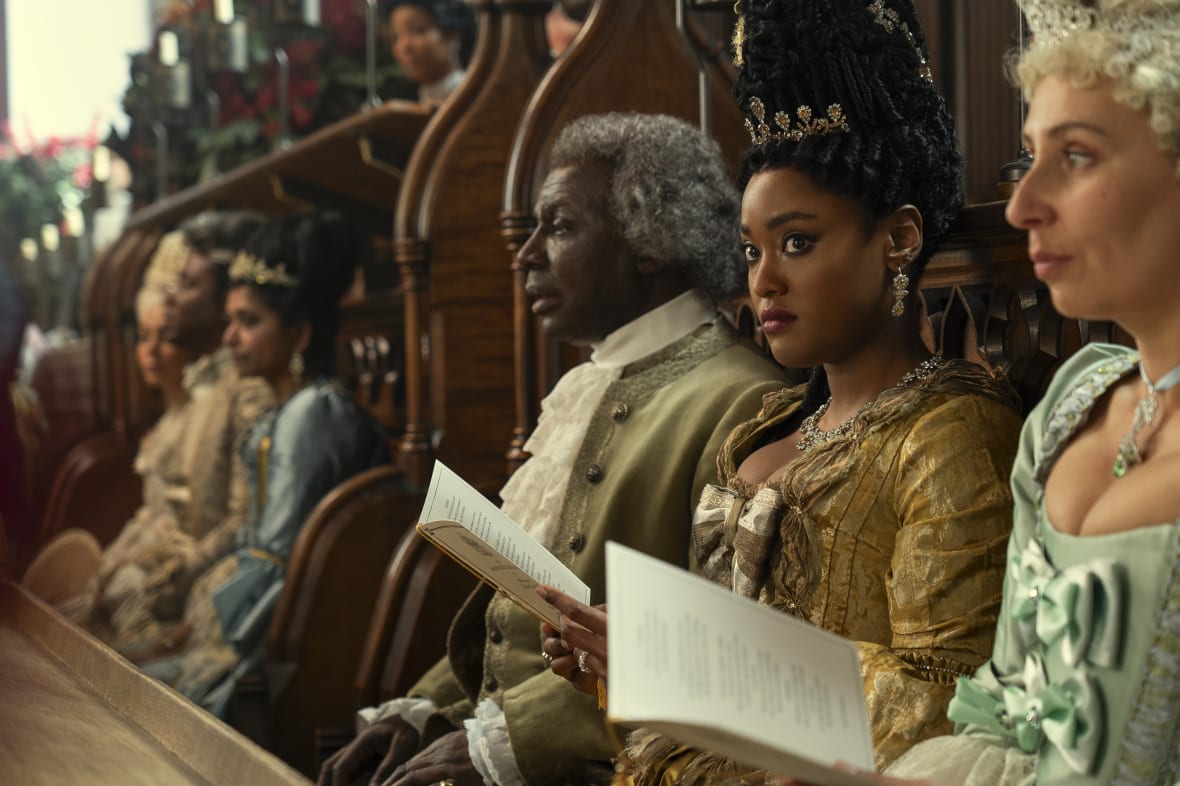
Considering colorism and the huge controversy the “Bridgerton” rape scene sparked in season one (where Daphne forces her husband to have sex to completion), I’m surprised that Rhimes’ ”Queen Charlotte” introduces the formidable character of young Lady Danbury on her back, pleasureless and vulnerable, in such a grotesque way.
The newly appointed Lord Danbury, the darkest-skinned character in the main cast, is little more than a clueless and sexist man whose unnamed fortune hails from Sierra Leone. (Did his family get wealthy from the slave trade, Shonda??) While Rhimes has rarely centered Black love in her work, (there is a Black man and biracial Black woman couple sidelined in the OG “Bridgerton” series) the only Black couple in the main cast of “Queen Charlotte,” could hardly be mistaken for lovers.
Lord Danbury’s dismissive comments to his wife invoke her eye rolls and convey his ridiculousness. His old man makeup furthers the imagery, leaving the extremely handsome actor who portrays him, Cyril Nri, not only looking far beyond his 61 years but more like a caricature. It’s obvious that his appearance is meant to make him a punchline and it is so glaringly unnecessary. Someone at Shondaland, please sound the alarm! Colorism is a continuing, pervasive problem on these shows.
That isn’t to say that all is well for Charlotte. Her mother-in-law literally tries to wipe the brown off her with a wet finger. The white folks at court nearly keel over in shock to see her walking down the aisle to become their queen. And though she was initially properly wooed by her husband, she soon starts to believe it is all a cruel trick. Out of nowhere, King George drops her off at Buckingham House and tells her this is where she’ll live, alone. Confused as to why they won’t live together, Charlotte insists that he stay with her — at least for the wedding night. He throws a shocking fit, orders her to obey him and leaves. Though “Bridgerton” (and history!) fans know King George III had some mental health issues, Charlotte and new fans of the series are left to wonder what’s really going on.
In a touching scene before Charlotte knew what she was getting into, a prescient Lady Danbury tells Charlotte to be careful and should she ever need her to call on her. It’s a touching Black girl moment of recognition; that much-needed “I see you,” that means so much coming from someone who understands. These two Black queens are the heart of this show and it’s these small moments and choices — like Charlotte trading in her tamed wedding hair for a majestic giant afro with a diamond crown on top — that show Shonda sees us, too.
Meanwhile in the “Bridgerton” timeline, grown and sexy Queen Charlotte is visited late at night by a doctor whom she fears is there to tell her that her beloved husband is dead. It’s not King George, however; it’s their only grandchild and her unborn baby who have both died in childbirth.
As the kingdom prepares for the funeral, Lady Whistledown is telling everybody who can read her pamphlet that the queen is so busy in everyone else’s marital business that she’s neglected her own and left the kingdom without a legitimate heir.
With King George behaving immaturely in the past, and Queen Charlotte’s 13 children seemingly unmotivated and ungrateful in the present, both versions of the queen are left wondering if they made the right life choices.
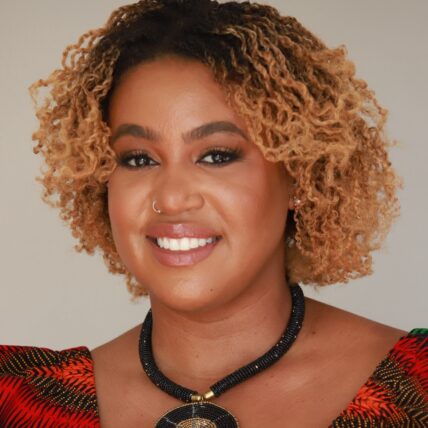
Brooke Obie is an award-winning critic, screenwriter and author of the historical novel “Book of Addis: Cradled Embers.”
TheGrio is FREE on your TV via Apple TV, Amazon Fire, Roku, and Android TV. Please download theGrio mobile apps today!
The post ‘Queen Charlotte’ Season 1, Episode 1 Recap: A ‘Bridgerton’ favorite gets her origin story appeared first on TheGrio.









